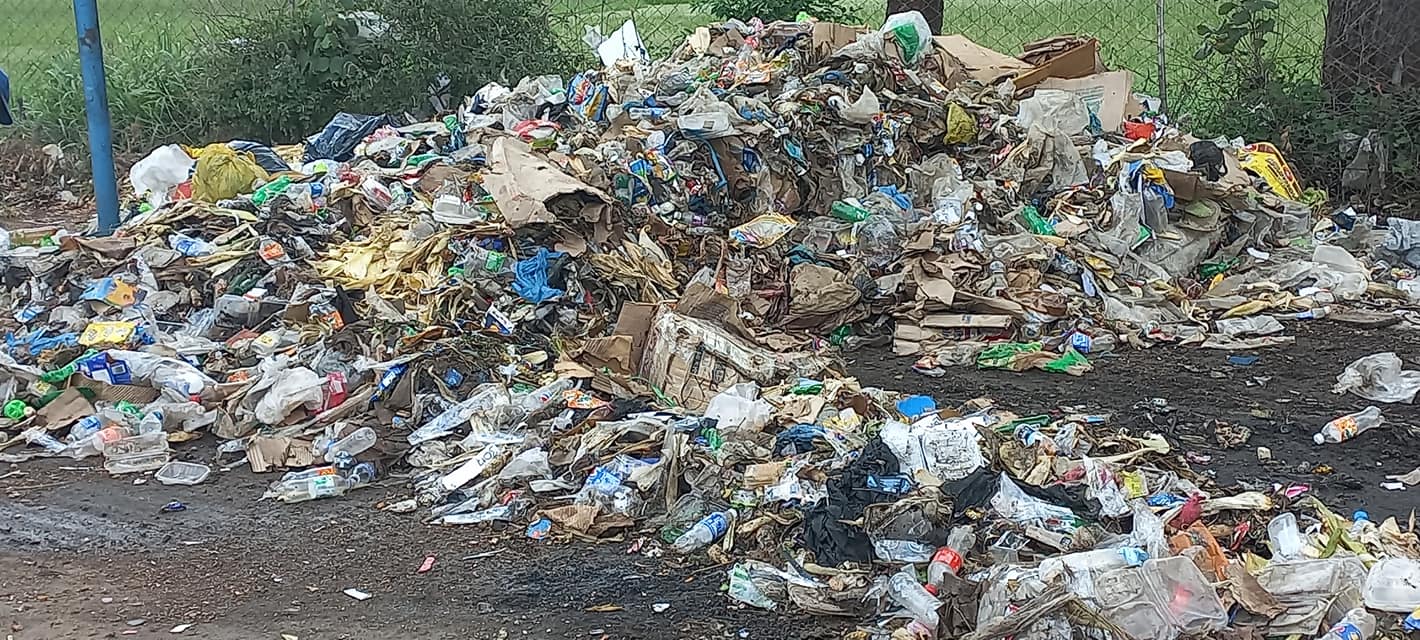To combat the rampant littering problem across Zimbabwe, the government is set to introduce mandatory community service for repeat offenders.
The move comes as cities like Bulawayo grapple with growing litter issues.
In a ministerial statement on solid waste management, Minister of Environment, Climate and Wildlife Nqobizitha Mangaliso Ndlovu said the state of solid waste management in the country is in a sorry state.
Ndlovu said deterrent fines for public littering will be introduced and enforced and repeat offenders charged with no option of a fine, but given mandatory community service.
“Our streets are infested with all kinds of waste streams, from PE and glass bottles, paper, plastics, and light bulbs to diapers and medical waste among others. Mountains of illegal dumps have become the norm, and in some cases, they sit right in the middle of roads in high-density areas, blocking traffic and water drains,” he said. Ndlovu said in Harare Metropolitan Province, the Environmental Management Agency (EMA) has mapped over 2 000 illegal dumps of various sizes.
He said even the highways are strewn with refuse.
“With this state of affairs, it is not surprising that year in and year out we experience Cholera and Typhoid outbreaks,” he said.
He added that in the previous years, the efforts made by the government were through the introduction of the national clean-up campaign.
“During the same period, the Government in collaboration with partners promoted the sound management of waste through national environmental commemorations, television and radio programmes, road shows, exhibitions and social networks, among others. We have taken the various local authorities to task, penalizing them regularly for them to attend to the crisis that is unfolding,” said Ndlovu.
He said the government after further deliberating on the state of cleanliness in the country, noted the continued failure to manage solid waste and additionally approved the following measures to curb the unsustainable accumulation of waste.
“A Statutory Instrument (SI) be promulgated to make the National Clean-up Programme compulsory for Government ministries, departments, agencies, local authorities, the business sector, vendors, retailers and manufacturers.”
Ndlovu said local authorities should localise the SI through the promulgation of the relevant by-laws.
He said the funds collected by local authorities from residents for waste management will be ring-fenced to ensure that the authorities do not divert the funds to other uses, with EMA supervising the usage of the funds.
The minister added that public transport vehicles that dump waste along roads should be fined up to Level 8, with the responsible transport operator or owner also being liable.
Meanwhile, he said all political parties should be compelled to mobilize their constituents to remove their campaign materials from the environment and ensure that it is correctly disposed of, with the assistance of local authorities.
Ndlovu said awareness and education programmes be undertaken, starting with a re-launch of the National Clean-Up Programme to embed a mindset against littering and general disorder.
“Community mobilisation for clean-ups should spread to Rural District Councils, wards and villages. To this end, councillors and traditional leadership are critical pillars going forward,” he said.

